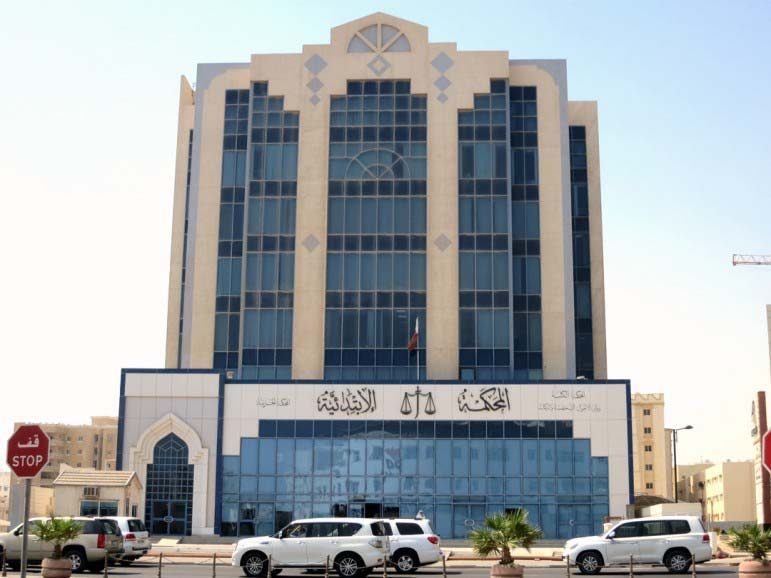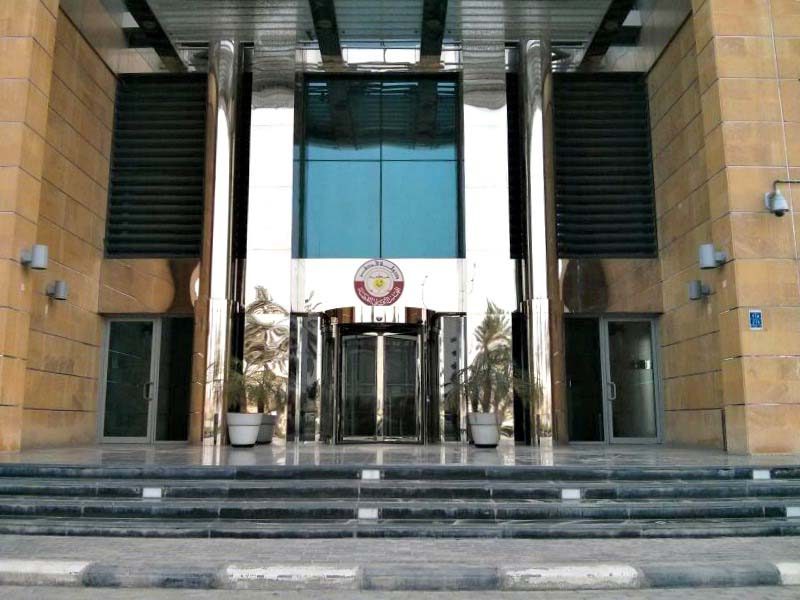
With reporting from Riham Sheble
A Syrian woman convicted of trying to bribe a Civil Defense officer in Qatar is expected to be back in front of a judge in the coming weeks when the Court of Appeal resumes after its summer break.
The woman was arrested in April 2013 at a petrol station near TV Roundabout, where she was caught giving the government official QR10,000 (US$2,746) in return for a commercial building safety certificate.
Her lawyer argued that the authorities entrapped the woman and encouraged her to offer the payment.
Even if that’s true, the woman admitted after she was arrested that she attempted to use her personal connection with a Civil Defense official to cut through bureaucracy and bend the rules.

The attempt comes amid ongoing government efforts to make buildings in this country safer following the deadly 2012 Villaggio Mall fire, in which 19 people, mostly children, died in an improperly licensed daycare center.
Following the fire, Qatar passed a law that among other things, requires new buildings to be inspected by Civil Defense in order to receive an occupancy certificate.
The convicted woman is not currently in custody, but faces a year in prison and deportation to her home country – as well as the forfeiture of the QR10,000 – if the original verdict is upheld on appeal.
Sting operation
According to court documents, the Syrian woman arrived in Qatar roughly a year before her arrest and was working for a local company that conducted feasibility studies for businesses and “facilitated transactions.”
Early in 2013, she went to a Civil Defense service center to submit paperwork on behalf of a client and met the official who she would later be accused of attempting to bribe.
Weeks later, she called the officer looking for help to obtain another safety certificate.
In a statement given at the police station following her arrest, the woman said she phoned the official to get help in obtaining approvals for a building that had not met the necessary conditions.
According to a court record of the statement given to police, the woman asked the officer if he could finalize approval of the building’s safety certificate regardless. She said he agreed, and asked for QR10,000 in return.
In court, the Civil Defense officer – a second lieutenant – told a different story.

He said that no monetary amount was discussed and after being contacted by the woman, he conveyed details of the conversation to his superiors. He said he was then instructed to complete the transaction so the woman could be arrested.
A sting operation was set up on April 25, 2013, when the woman was instructed to meet the Civil Defense officer at roughly 9:30am at the Yarmouk petrol station in Wadi al-Sail.
Investigators who were covertly monitoring the transaction testified in court that they observed the woman leave her car and walk a short distance to the Civil Defense officer’s vehicle. Less than five minutes later, investigators approached the vehicle containing the two individuals.
The woman was holding a Civil Defense certificate in her hand and QR10,000 was seen inside the vehicle, between the driver and front passenger seat.
She was later convicted on charges of offering a bribe to encourage a civil servant to violate the duties of his job.
At the police station, she insisted that she did not offer to bribe the officer and that he was the one who asked for money.
Language center
Adding another dimension to the case is an aborted business relationship between the convicted woman and the Civil Defense officer.
Several days after their initial meeting at the Civil Defense office, the two ran into each other at City Center Mall and then sat down at a coffee shop with a friend of the officer, according to the woman’s statement to police.
The conversation turned to starting an Arabic language training center, and the trio discussed forming a partnership to launch the business.
The woman told police that she and the Civil Defense officer spoke on the phone and met in person two or three times after that initial coffee shop meeting to discuss budgets and profit-sharing formulas.
Eventually, the Civil Defense officer told the woman that he and his friend were bailing on the initiative, but that she should not hesitate to contact him if she ever needed any assistance with transactions or paperwork.
Again, the officer’s account of the details differed. Under cross-examination, he said that he ended discussions about the business partnership only after she had offered him a bribe.
In court, the woman’s defense lawyer argued that the authorities had no right to incite the woman into committing a crime. The incident, he said, was unproven because of the “maliciousness of the accusation.”
His request for an acquittal was rejected by the court, which convicted the woman based on her confession at the police station and determined there was no evidence to support her claim that it was the Civil Defense officer who asked for the bribe.
When contacted by Doha News, representatives of the Syrian Embassy said they were not aware of the case, but were looking into it.
Thoughts?







